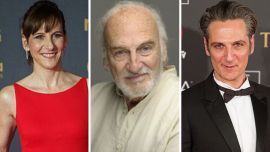Patricia Bullrich feels she is close. The former security minister and now confirmed candidate for the opposition Juntos por el Cambio coalition in the October 22 election must win another battle if she is to make it to the Casa Rosada.
The first time Bullrich confirmed to her inner circle that she wanted to be president was in March 2021. The election was still more than two years away, but she was convinced that the country wants and needs a change. With that certainty, she embarked upon a path that made her one of the most competitive candidates in the race.
Only a few days ago, Spain's El País newspaper dubbed her the “Argentine iron lady.” It's quite an achievement – for years she has been building her image on the basis of a “tough” discourse. And if there was any doubt, the PRO leader removed them with her latest advertisement on August 7: it carried the tagline “All or nothing."
Bullrich has said it will take “plenty of strength to bring back order” and that her economic plan will have to be defined “in the streets.” Her immediate goal has already been achieved: winning the primaries against Buenos Aires City Mayor Horacio Rodríguez Larreta.
A collaborator close to Bullrich said that “all or nothing means using the baton.” And even though the ad shows images of social chaos and picketeers’ demonstrations, he claims she actually wants to defend social movements – including in that definition “parents who demand the opening of schools.”
According to the source, any interpretation of another kind has been installed deliberately. “[Rodríguez] Larreta supporters exaggerate and label her as ‘violent’,” they said.
In recent weeks, all of Bullrich’s darts have been aimed at Rodríguez Larreta. Now she has defeated him in the PASO primaries, the big question is how the opposition coalition's leaders will be able to sustain their coalition after a wild campaign.
In Buenos Aires Province, the 67-year-old's rivals accuse her of “playing dirty,” parachuting in candidates to districts that were already organised. This peaked when Bullrich’s favoued candidate in Santa Fe Province, Carolina Losada, accused her adversary, Maximiliano Pullaro, of having links with drug-dealers.
Within her orbit, they minimise the hostility. They claim that Bullrich has always respected Rodríguez Larreta and that placing her own candidates in different towns “is political construction” and that “you should not put Carolina’s words in Patricia’s mouth.”
What her stance will be now is a mystery. But when looking at her background, one can attest to the fact that Bullrich has a hard time changing her mind.
First steps in the Peronist left
“She’s not conservative. She might be a liberal. But she’s not afraid of the term ‘right-wing’,” they say in her inner circle. Approaching her seventies, Bullrich has become one of the referents of a rising sector, but that was not always the case.
The daughter of doctor Alejandro Bullrich and Julieta Luro Pueyrredón, Patricia grew up with her three brothers in an aristocratic family. Her lineage includes politicians and businesspeople from the Argentine upper class, dating all the way back to the 19th century. She is not the only one from the clan in the limelight, her cousin and singer Fabiana Cantilo and fellow PRO politician Esteban Bullrich are also well-known.
Patricia rebelled against her family history in the 1970s and when she was 15 years old, she made a decisión which bewildered everyone: she joined the ranks of Juventud Peronista ("Peronist Youth").
Her sister Julieta married Montonero leader Rodolfo Galimberti, with whom Patricia built an extremely trusting relationship. In 1977 she fled the country into exile. She lived in Mexico, in Europe and Brazil and in one of her attempts to come back, after the Malvinas War, she spent a bit of time in jail.
Her pseudonym was “Carolina Serrano” and although she goes to great lengths to stress her now critical view of that time in her life, her past always comes back.
In July, for instance, posters showed up in Buenos Aires which read “Carolina Serrano president.” Her supporters spoke of a “smear campaign” designed to harm her presidential ambitions.
Return to democracy: Cafiero’s Peronism, Alianza and Macrism
In the 1980s Bullrich was close to Peronist leader Antonio Cafiero. She was elected as a deputy in 1993 and later in the decade, when she was widely known as “La Piba” ("The Kid"). Her career took another turn and she became close with President Fernando de La Rúa. She served as labour minister, another stage often returned to in this campaign. As an official, her 13 percent cut to the salaries of civil servants and pensions was unpopular.
When de la Rúa fell, Bullrich approached other leaders who had strayed from traditional parties, such as Ricardo López Murphy (she was a City mayoral candidate for Recrear in 2003). In 2007, she returned to the lower house Chamber of Deputies thanks to Elisa Carrió.
Bullrich's profile rose considerably in 2015, when she joined Mauricio Macri's government as security minister. Often sparking controversy with outspoken statements, her relationship with Macri was strong and the two grew close – despite the fact that years previously she had branded the businessman “corrupt” on national television.
As a frontline minister for the Cambiemos administration, she backed the security forces and encouraged a hard-line approach, defining her "tough" profile in the process.
In particular, her backing of the security operation in the south of Argentina in which Santiago Maldonado was found dead drew fire from opponents. She followed that up by her strong support for Buenos Aires Province police officer Luis Chocobar, who was sentenced to jail-time for killing a thief in La Boca, putting her at loggerheads with human rights organisations.
Feminism and the Merkel model
Bullrich sticks to her guns. Her gut told her that there was a sector waiting to be represented and that she could speak to it. She didn't even flinch when in 2018 feminist movements filled the streets and the political class railed against her.
She doesn't often put her gender in play – one of the few times Bullrich has talked about such issues was to back Buenos Aires City Education Minister Soledad Acuña, who called publicly for the closing of the Women, Gender & Diversity Ministry.
“She agrees with equal opportunities, but she never joined the movement," said an acquaintance, speaking on the condition of anonymity. "Patricia’s a self-made woman and feminists have not been nice to her, they made her invisible and attacked her."
The idea of the “self made-woman” is repeated often within her inner circle, and those close to her claim that hers is the “Merkel model.” Like the former German chancellor, Bullrich is the political one in her household. Her husband, Guillermo Yanco, has been in the cultural sphere for over 30 years and wants nothing to do with politics.
Little is known publicly about her private life. Bullrich's only son, Francisco Langieri Bullrich, born from her relationship with Marcelo Langieri, works in the private food sector.
Francisco dabbled in politics during the Macri years, at one point being appointed to the Modernisation Ministry. However, he left the post in 2018 after the then-president issued a decree banning relatives of ministers from being in public office.
Nowadays, Guillermo and Francisco are a part of Bullrich’s tight-knit private circle. She juggles with her schedule to see her grandchildren three times a week.
That aspect of her life is kept away from the cameras. To be a tough candidate it is better to be affectionate only in private.




















Comments